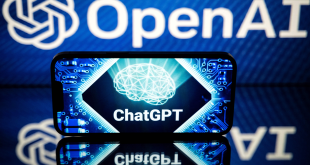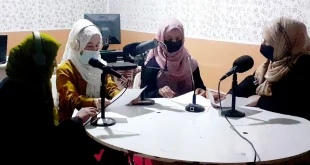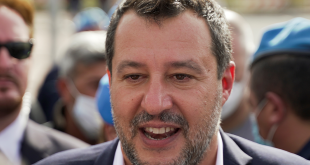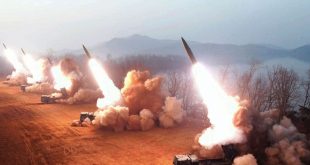
A Japanese court on Tuesday rejected a damage suit filed by a group of children of Hiroshima atomic bombing survivors seeking government support for medical costs, saying the hereditary impact of radiation exposure is still unknown.
A group of 28 plaintiffs whose parents suffered radiation exposure in the Aug. 6, 1945, U.S. atomic attack were demanding the central government include them in the medical support available to survivors.
The Hiroshima District Court said the possibility of a hereditary effect from radiation cannot be denied, but there is no established scientific consensus and the government’s exclusion of the plaintiffs from medical support is not unconstitutional.
UK TO PROBE WHETHER THE 1998 OMAGH BOMB, ONE OF IRELAND’S DEADLIEST INCIDENTS, COULD HAVE BEEN PREVENTED
The government has insisted there is no scientific evidence showing a hereditary effect from parents’ radiation exposure on their children.
The plaintiffs filed a lawsuit in 2017 seeking $760 each from the government in damages, saying their exclusion violated the constitutional right to equality.
A similar lawsuit by their peers in Nagasaki was also rejected in December.
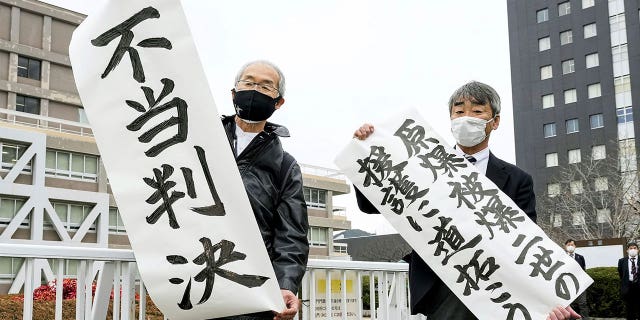
Plaintiff Katsuhiro Hirano, right, and an unidentified lawyer for the plaintiffs display signs in Hiroshima, Japan, on Feb. 7, 2023. The banners read “Pave the way to backup Second-Generation Atomic Bomb Survivors,” right, and “Unfair judgement.” (Kyodo News via AP)
The plaintiffs said they plan to appeal Tuesday’s decision, which they called “unjust.”
“It was an extremely cold ruling,” plaintiff Taku Kakuda told reporters. “It was as if we were told to prove the radiation impact on humans with our bodies.”
The atomic bombing of Hiroshima destroyed the city and killed 140,000 people. The United States dropped a second bomb three days later on Nagasaki, killing another 70,000. Japan surrendered on Aug. 15, 1945, ending World War II and its nearly half-century of aggression in Asia.
AFGHANISTAN INTELLIGENCE OFFICIAL BRAGS ABOUT ORDERING ATTACKS THAT KILLED HUNDREDS OF CIVILIANS
Many survivors of the bombings have lasting injuries and illnesses resulting from the explosions and radiation exposure and have faced discrimination in Japan.
Their children, known as “hibaku nisei,” or second-generation survivors of atomic bombs, say they constantly worry about the possible hereditary effects of radiation from their parents’ exposure, and many have developed various forms of cancer and other health problems. They estimate their numbers at 300,000 to 500,000.
CLICK HERE TO GET THE FOX NEWS APP
Currently, only survivors and those with prenatal exposure who were certified can receive government medical support for their radiation illnesses and cancer checkups. The government started providing free medical checks for their children in 1979 but cancer examinations are not included.
“We understand that the court acknowledged our argument,” Chief Cabinet Secretary Hirokazu Matsuno said of Tuesday’s ruling.

 Latest Breaking News Online News Portal
Latest Breaking News Online News Portal

